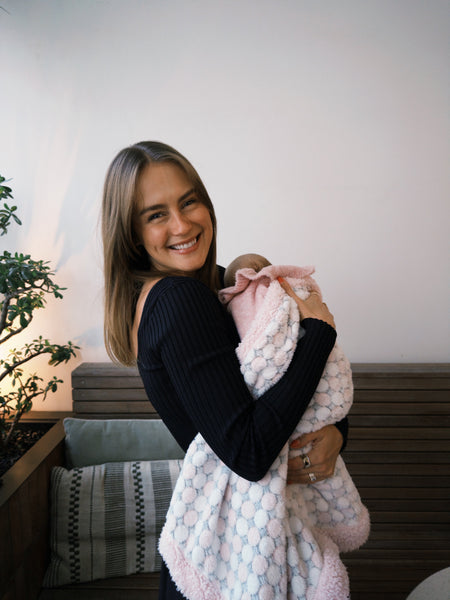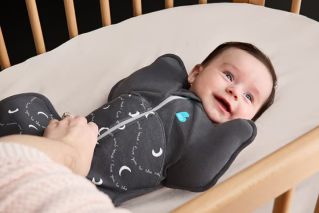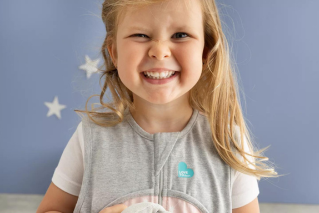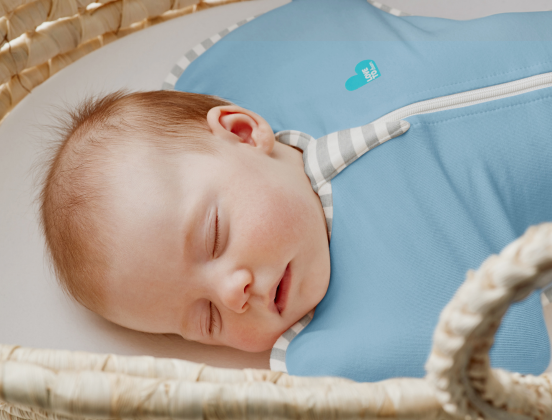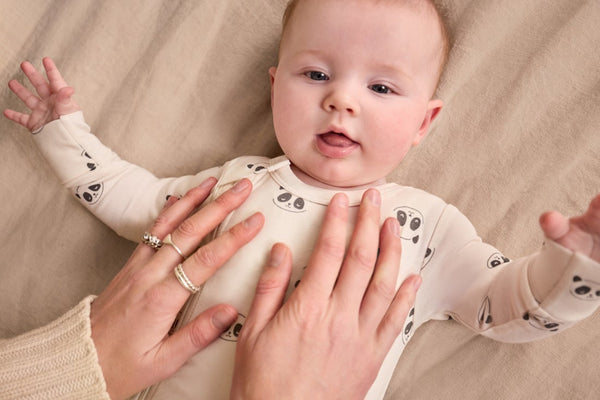What is sleep regression?
A sleep regression is when you see a shift in your baby or toddler's sleep patterns without an obvious cause like illness, teething or travelling. Your baby (who may have been sleeping beautifully), suddenly starts waking during naps and overnight, and is difficult to settle back to sleep. You may experience these periods around 4 months, 8 months, 12 months and even 18 months.
While no one wants setbacks in sleep, the exciting news is that it’s happening because your little one is experiencing a developmental leap. That’s why some people prefer to call them ‘sleep progressions’.
What causes sleep regression?
If your baby does experience a sudden change in sleep and behaviour, it’s important to rule out illness first. Viruses, ear infections and even UTI’s can all impact how your baby is feeling and sleeping. If there is no underlying pain or discomfort causing the sleep and settling issues, it may be that your baby is experiencing a sleep regression.
Simply put, sleep regressions are caused by your baby growing and developing. As your baby begins to learn new skills, they may begin to wake between sleep cycles, and instead of being able to settle themselves back to sleep, they become more alert. At around this age, a baby’s sleep starts to mature. Your little one may begin to experience phases and stages of sleep more closely aligned to that of an adult.
The “4-month sleep regression/progression”
Though sleep regression may be experienced a little earlier or later than 4 months, by 3-4 months of age, a baby is much more alert and aware of their surroundings than when they’re a newborn. They may be reaching out to grab things, have better head control, start making new sounds and for many, this is the time you’ll see them learning to roll.
Just like everyone around them, your baby is fascinated by all the new things they’re able to do. So, when they’re moving into the lighter phases of their sleep, and transitioning from one cycle to the next, they’re more likely to wake, notice and be interested in their surroundings and want to practice their new skills. That self-soothing back-to-sleep they were starting to learn is no longer a priority!
Once bub has started mastering their new skill and it’s no longer new or exciting, their sleep should get back on track, but there are ways you can help manage and survive the disrupted periods.
What are the signs and symptoms of a 4-month sleep regression?
When there is a prolonged and unexplained disruption to your baby’s established sleeping patterns it may be a sleep regression. Sleep regressions are characterised by:
Difficulty falling asleep
Your baby may need extra support or assistance to fall asleep during this time. They are beginning to develop, and in their more alert state, they may experience difficulty drifting off to sleep.
Frequent night-time awakenings
Your baby may be waking between sleep cycles where they were previously able to self-settle or soothe themselves back to sleep.
Irritability upon waking
A reduced number of sleeping hours and quality of sleep, may cause your baby to be more irritable upon waking.
Reduced total sleep time
Taking extra time to get to sleep and not being able to join sleep cycles together, may result in less total sleep time for your baby over a 24-hour period.
Other periods of sleep and settling disruption
Your little one may experience disruptions to their sleep again when they’re learning new motor skills like crawling, sitting, standing and walking, when they’re starting to talk and express themselves in new and different ways. Babies can become unsettled as they’re getting older and start testing the boundaries, trying to prove their independence and of course, when they’re teething, unwell and when you’re travelling or leaving them in a new or different environment (like daycare or sleepovers at the grandparents).
All babies and children will go through these stages and phases in some way. While you can’t avoid or control them, try to remember, these periods of change and disruption are temporary.
Tips on managing sleep regression in babies
When you’re feeling exhausted, or sleep-deprived, knowing sleep regressions are temporary may not fill you with a lot of enthusiasm in the moment. Here are some things to remember to help you through this period:
Try to stay calm
Remember this is a natural development. It shows your baby’s development is progressing and while it might take a couple of weeks, your baby’s sleep will get back on track.
Stay consistent
You might need to offer a little extra support as bub settles off to sleep or if they wake overnight, and it might take a little longer than usual to get them to settle. If they’re unwell or in a new environment, they may need more reassurance and comfort. It’s okay to be flexible, just try to stay consistent with your routines and strategies as best you can
Remember the 4 foundations to healthy sleep
When you’re exhausted and desperate for your little one to sleep, it’s understandable you’re willing to try anything to get them drifting back to dreamland. Remembering the 4 foundations to healthy sleep, settling methods and ways to support bubs self-soothing, will help you and bub get through these periods of disruption and help you avoid forming bad habits.
Make sure bub is getting enough sleep
Whether bub is unwell, teething, in a new environment or going through a period of development, it's important they still get enough sleep across their whole day. If bub had a particularly disrupted night, they may need to make up for it with extra or longer naps the next day. Remember, an overtired baby can be even harder to settle, so keeping them well rested is key.

